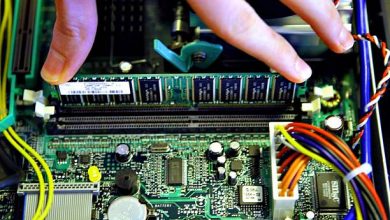How To Develop A Growth Mindset(The Ultimate Guide)

How To Develop A Growth Mindset: It’s more crucial than ever to adopt a “growth mindset” in today’s competitive environment. The world is evolving at a dizzying rate, and we constantly encounter fresh difficulties. The way we live and the standards we adhere to are both evolving, and we must as a result. Because of this, adopting a growth mentality is crucial. EnoughInfo.com

FAQs & Answers
What is the difference between a growth mindset and a fixed mindset?
A growth mindset is a belief that your abilities and talents can be developed through effort and hard work, while a fixed mindset is the belief that your abilities and talents are innate and cannot be changed.
Read Also: How To Improve Your Work-life Balance
Can anyone develop a growth mindset?
Yes, anyone can develop a growth mindset by embracing challenges, seeing failures as opportunities to learn, and persisting through obstacles.
How long does it take to develop a growth mindset?
Developing a growth mindset is a continuous process that takes time and effort. It’s not a one-time event, but a lifelong journey of learning and growth.
How can parents help their children develop a growth mindset?
Parents can help their children develop a growth mindset by encouraging them to embrace challenges, view failures as opportunities to learn, and persist through obstacles. They can also praise their children’s effort and hard work, rather than just their intelligence or talent.
How can a growth mindset help in the workplace?
A growth mindset can help individuals in the workplace by fostering a culture of continuous learning and improvement. It encourages individuals to embrace challenges, learn from failures, and persist through obstacles, leading to greater innovation and success.
Read Also: How To Identify Your Career Interests( All You Need To Know)
What Is A Growth Mindset
A growth mindset is a conviction that one’s skills, knowledge, and aptitudes can be enhanced and developed through commitment, effort, and perseverance. Individuals who have a growth mentality see obstacles, setbacks, and errors as chances for development rather than as proof of their limits.
A fixed mentality, on the other hand, is the conviction that one’s skills and qualities are unchangeable and cannot be developed. Individuals who have a fixed attitude shun challenges and give up quickly when they encounter difficulties or failures because they think that their skills are fixed and that they cannot develop.
Those who have a growth mindset are more inclined to take on challenges and persevere in the face of difficulty, which can boost resilience, creativity, and enthusiasm to learn. Also, it can result in better success and improved academic, interpersonal, and professional performance.
Identify your own mindset
Think about how you now deal with problems in the workplace or at school to get a sense of your current frame of mind. Consider whether you tend to use phrases like “I’m a natural people person” or “I’ve learned to work effectively with people” when describing yourself. Would you rather say that she “earned her way up to the leadership post” or that “she’s a natural leader”?
Such introspective inquiry can reveal if you have a more fixed or growth mentality and guide you toward the development of the latter. Having this kind of self-awareness is the first step in making the adjustments that might completely alter the trajectory of your professional life.
Look at your own improvements
Consider a skill you possess today that you did not previously. What prior did you find challenging? Why does it now seem simpler? And how did you manage to alter that much?
These ideas may cause you to reflect on the time and effort you’ve put into developing certain skills, which are characteristics of a growth mindset.
Re-frame your fixed mindset beliefs
Once you have identified your fixed mindset beliefs, work on re-framing them into growth mindset beliefs. For example, instead of thinking that your intelligence is fixed, remind yourself that you can always learn and improve.
Review the success of others
Consider anything that you’ve seen someone else does despite the odds. Consider their methods for success and what this implies about their capacity for skill development.
Seek feedback
A growth attitude may be developed by asking for input from others, regardless of whether a project was successful or not. These could help you see where you need to grow or where you have made progress. This might then assist you in establishing improvement-related goals.
Learn something new
Do something entirely new, and put yourself to the test by learning something you’re not already adept at. You may begin by picking up a new language, taking up an instrument, or mastering the fundamentals of economics.
You may cultivate a growth mindset and be more receptive to acquiring new abilities by becoming used to stepping outside of your comfort zone.
Make mistakes
You’re not going to get everything right the first time of trying. Let yourself make mistakes so that you may learn from them. Think of mistakes as a necessary component of learning rather than as evidence of incompetence. You may learn from mistakes by recognizing potential areas of weakness or ignorance where you can make serious progress.
- View failures as opportunities to learn: Instead of seeing failure as a personal flaw, view it as an opportunity to learn and grow. Ask yourself what you can learn from the experience and how you can use it to improve.
Take care of yourself
Try to think of how you’d treat someone else in your circumstances rather than berate yourself for your mistakes. Would you tell someone they are worthless if they failed at something you are an expert at, or would you encourage them to learn?
You can have better relationships, communication, and emotional support if you practice mindfulness. It can also assist you in recognizing and avoiding ideas that are related to a stuck mindset.
Look at examples
Looking at folks who already have a growth mentality might be beneficial if you’re trying to cultivate your own. There are chances to learn from others, whether through examples from professionals or by looking at people you currently know. Look at what they do and how they address problems, then consider how you may use similar strategies.
Set realistic goals
There are a variety of factors that affect success, as we’ve already discussed. Personality, intelligence, situation, and other variables can all contribute. But, you may strive toward achievement by defining specific objectives that offer a stimulating challenge.
Surround yourself with growth mindset individuals
Surround yourself with people who have a growth mindset and who encourage and support your efforts to learn and grow.
Conclusion
Additionally, practicing self-compassion, surrounding yourself with growth mindset individuals, and focusing on the process rather than the outcome can help you develop and maintain a growth mindset. Remember that developing a growth mindset is a journey, not a destination and that it requires consistent effort and a willingness to learn and grow.
With a growth mindset, you can unlock your full potential, achieve your goals, and find fulfillment and meaning in the process.
Read Also: How To Build A Successful And Fulfilling Career In Today’s World




